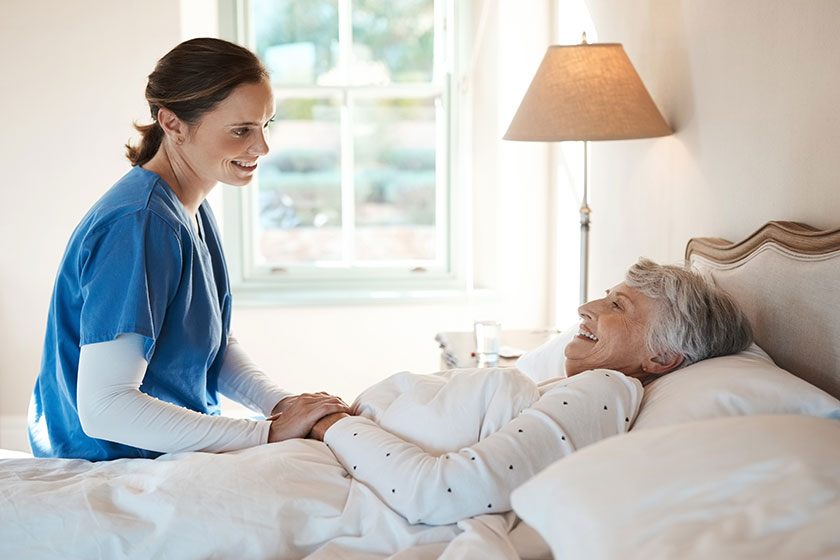It’s common for aging family members to have trouble sleeping during their later years, but dementia can make it worse. A memory care community in Clayton, NC, is a good option for seniors with dementia who have sleep disorders. This post will explore how dementia can affect sleep and why it’s important to get help right away.
Dementia Can Cause Sundowning
Dementia is a progressive disease that causes memory loss and other cognitive impairments. It affects over 5 million people in the United States, with nearly half of those individuals living in long-term care facilities or their own homes.
Aging family members with dementia may experience sleep problems during the daytime as well as at night. They may have difficulty falling asleep, wake up repeatedly throughout the night or stay awake for long periods of time after going to bed.
Sundowning is one of these common sleep issues among aging adults with dementia who live in memory care communities—a circadian rhythm disorder characterized by agitation, confusion and anxiety in the evening hours. Sundowning can also be caused by depression; if this is suspected to be the cause of your loved one’s sleep troubles, they should be screened by a mental health professional.
It’s common in people with dementia and can also be caused by depression or other mental health issues, but it’s most likely to occur when an individual experiences both dementia-related cognitive decline and changes in their circadian rhythm as they age.
Because of this overlap, memory care communities are uniquely equipped to monitor for sundowning symptoms in residents with dementia who have sleep problems—and help them get more restful sleep overall.
Cognitive Changes Can Disrupt Sleep
Aging family members with dementia often experience cognitive problems that affect their ability to fall asleep, stay asleep and feel rested. They may wake up more during the night or earlier in the morning, leaving them sleepy during the day. They also might have trouble staying awake during a normal bedtime routine, like reading or doing crossword puzzles before lights out. Caregivers should monitor symptoms closely and adjust sleep patterns as needed by introducing new routines or making changes to existing ones.
Dementia Can Affect Circadian Rhythms
You may be wondering how a circadian rhythm is affected by dementia. For example, if your grandmother has dementia and you have to stay with her at night, she might have trouble sleeping because she doesn’t recognize her bedroom or the familiar sounds in it. This will cause stress for both of you and make it even harder for her to fall asleep quickly.
If this sounds like something that could happen in your family, consider enrolling your loved one in a memory care community that offers 24/7 monitoring so they are safe while they sleep. As she becomes more familiar with her surroundings, she’ll be able to relax more easily and get better quality rest at night—which means so will everyone else!
Dementia Can Cause Insomnia
One of the first symptoms of dementia is insomnia. It can be hard to sleep when one does’t know what day it is and their body has forgotten how to move into a comfortable position.
As soon as night falls, make sure your loved one gets into bed and stays there until morning. If they struggle during the night, try putting them in a wheelchair or on their side so they’re less likely to fall out of bed and hurt themselves (or you).
If things get really bad, consider getting an electric mattress pad for extra support when sleeping on their back or side, along with a pillow under their knees if needed.
Memory Care Communities are Good for Older Adults Who Have Dementia and Sleep Problems Associated with it
Memory care communities are an excellent choice for aging adults who have dementia and sleep problems, as these communities are designed to help with both. The care team at memory care communities has specialized training in helping residents with dementia, and they know the best ways to assist their residents with their day-to-day activities—including getting them to sleep.







